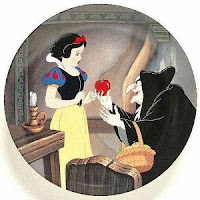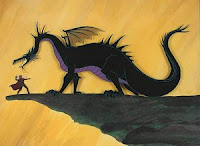On a sunny, hot day in May of 1991, a screaming baby girl was placed into the arms of her white middle-class mother and cooed over by her white middle-class father. Little did she know that she had already received three ascribed statuses within her short time on the planet. She was a female, signified by her pink baby hat. She was white, signified by her skin color. And she was middle-class, signified by her parents’ occupations and the type of car they drove her home in. The brand new baby, with three social statuses already to her name, and countless other possible statuses on the horizon, was me.
Let’s begin with how my ascribed status of female has affected me. Bombarded with female gender roles (from Disney princesses to magazine ads), I gathered the idea that women are only as good as their bodies. This led to a couple crash-course diets and a generally bad body image. I was also taught to accept the idea that boys are better at math, science, sports, and physical combat. Perhaps I wouldn’t have been good at these things anyway, but I certainly am not now. I remember distinctly enjoying math and science until about halfway through elementary school.
Being white definitely affected the way I view the world. Discrimination was not part of my childhood, and I ended up with a sense of race entitlement. Growing up in a mainly white area, my ideas were tinted with stereotypes of other races, and perhaps even the idea that whites are better. Although I realize now that this is untrue, it was still a part of my childhood, and it affected the way I think, subconsciously at least.
As a middle-class child, my parents were always very involved with my homework. Both of my parents have Masters degrees. Education was the most important thing, and I had that idea pounded into my head. My parents taught me how to read before I was enrolled in school, and this gave me a leg up and I was quickly placed in the advanced reading group. Thus, I was given the idea that I was one of the “smart kids” very early on. Consequently, I had more self confidence in my abilities through the rest of my schooling. My parents also enrolled me in several extracurriculars. Gymnastics, church musicals, horseback riding, Girl Scouts, and soccer were all in my agenda. My summers were never spent at home. I would spend weeks at camp, the Governor’s School for the Arts, and the Governor’s School at the College of Charleston. Time spent with my family during the summer was spent traveling. Whether it was to upstate New York to see my family or to Europe to be tourists, museums and historic sites were frequented on the way. Everything was turned into an opportunity for learning, and becoming a more well-rounded person for college. My parents started preparing me for college when I was just a child. Being middle-class also led to the cultivation of the idea that I have the right to be treated like an equal and that I have the ability to question adults. It gave me a sense of entitlement.
My parents occupations definitely also had an impact on me. Both are certified teachers, although my mother is the only one who actually works as a teacher. My father works for Allstate. From my mother, I saw the intrinsic rewards that can come from being a teacher, and I got a first-hand look at the responsibilities that go along with the job. I doubt I would be studying to be a teacher now if it weren’t for her. My father was always bringing home free rewards from his job for working hard. Once they even gave us a free family Disney cruise. From these experiences, I got used to the idea that one day I would be working a job that was good. Never did the idea of working for minimum wage the rest of my life cross my mind. Because I was middle-class, I knew I was going to college, and it wasn’t even an option.
My favorite things in the world are Broadway musicals. Without a different life, I might never have been exposed to theatre. My parents both value (and can afford) art, so I was taken to local shows as a child, and was encouraged to take part in church and local productions. This is a trend that has continued through my life and led directly to me working part-time in the theatre department here at the college and being in a production this year.
Because of the year I was born, I am a Millennial. Because of this, I am adept at using technology and probably have too high a view of myself.
The town I grew up in was very small. This definitely affected my perceptions. I am used to knowing everyone and manners being an everyday part of life. Living in Charleston now, I feel very small and insignificant because I am used to much smaller groups of people. I was also unaccustomed to the bluntness of those who live in the city.
My parents are both very religious. Because of this, I’ve been going to church since I was a baby. This has affected my beliefs and I am still a Christian today. Had my parents not exposed me to religion as adamantly as they did, I probably would not be religious.
Growing up in the South definitely also had an impact on me. I have been constantly pelted with conservative beliefs. It is probably this combined with the time I spent at liberal institutions (like the Governor’s School programs) that caused me to break away from my family and identify as a liberal.
In the future, I can see this past affecting me in many ways. I am planning on attending graduate school for Egyptology. If my father had not been a certified history teacher and subscribed me to Archaeology magazine as a kid, my trajectory would probably be quite different. My upbringing will help determine the mate I pick. I am very likely to pick a person of my own social class. It will also affect how I raise my children. While I plan to be more liberal with my kids (a direct consequence of my parents being overly-conservative with me), I will probably raise them much like my parents raised me. I know I feel the same way about punishment as my parents, and I will also take my children to church. Growing up in the south, I believe, will push me to move up north before starting a family. I would like to stick with the small town idea, though, because I believe it’s the best environment to raise a child in. My kids will be taught to value education and the arts (mainly because I will force them to listen to Broadway show tunes).
The ascribed statuses I was given as a baby definitely influenced the earned statuses I pursue now and will pursue in the future. Although I could continue to list the factors that made me who I am today, these--gender, ethnicity, social class, my parents’ occupations, the things my parents value, religion, region of the country I grew up in, the generation I was born to, and my hometown--all greatly influenced the facets of my personality and my beliefs.







